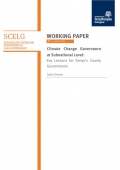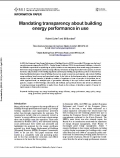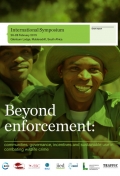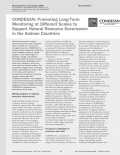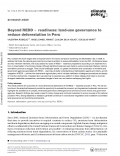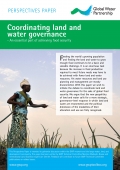governance
The Nagoya Protocol on Access to Genetic Resources and the Fair and Equitable Sharing of Benefits Arising from their Utilization (ABS) to the Convention on Biological Diversity (CBD) entered into force on 12 October 2014, as the first meeting of the Conference of the Parties serving...
Covering 52 million hectares of forest lands, forest licenses in Indonesia can play a role to regulate high forestry and land sector emissions and be a key element in strengthening forest governance for REDD+. The existing online licensing system at the central level has been a first...
In 2002, the European Union Energy Performance of Buildings Directive (EPBD) was ratified. This paper uses the lens of one policy measure triggered by the EPBD – Display Energy Certificates (DECs) for non-domestic buildings – to describe the difficulties experienced in capitalizing on...
La Agencia de Medio Ambiente del Ministerio de Ciencia, Tecnología y Medio Ambiente de la República de Cuba se encuentra organizando la X Convención Internacional sobre Medio Ambiente y Desarrollo que se realizará, entre el 6 y el 10 de julio del 2015, en el Palacio de Convenciones de...
The Centre for International Sustainable Development Law (CISDL), the Governance, Environment & Markets Initiative at Yale University (GEM), and the Northern Institute for Environmental and Minority Law (NIEM) of the...


